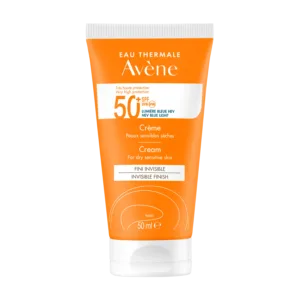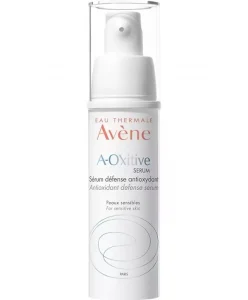
When it comes to beauty and well-being, there’s a hidden code that determines much more than eye color or height: it’s your genetic fingerprint for skin health. In this article from The Dermo Lab, we’ll discover the fascinating link between your DNA and the complexion you wear. We’ll unveil the science behind your skin, explore how your genes influence everything from acne to aging, and discover how this knowledge can revolutionize your skincare routine. Get ready to decode the secrets of genetics and skin health, and embark on the path to long-lasting radiance.
What are the genetic foundations of skin health?
Your genetic code, also known as DNA, contains the blueprint for your entire being, and your skin is no exception. Every characteristic, from skin type to predisposition to various skin conditions, is influenced by your genetic heritage. It’s as if you had an instruction manual for your skin, which determines how it will age, how it will react to environmental factors, and even its predisposition to certain skin problems.
- The genetics of skin type
You’ve probably heard of different skin types, such as dry, oily, or combination. These characteristics are, to a large extent, hereditary. Your genetic heritage determines the type and quantity of natural oils produced by your skin, which can affect your overall skin type. If your parents had oily skin, chances are you have the same skin type.
- Fighting acne
Acne, a common skin condition, can be a real source of concern for many people. Genetics can play an important role in your predisposition to acne. If your parents or siblings have suffered from acne, you’re more likely to get it too. Certain genes are associated with an increased risk of developing acne.
- Skin aging and wrinkles
Aging is an inevitable process, and your genetics play an important role in how your skin ages. The genes you inherit influence factors such as collagen production, skin elasticity, and antioxidant protection. Some people may have a genetic advantage for maintaining a youthful appearance, while others may be more prone to the early signs of aging.
- Skin pigmentation and sun sensitivity
Genetics also determine the amount of melanin in the skin, which determines skin color and how it reacts to sun exposure. Lighter-skinned people may be more susceptible to sunburn and skin damage, while darker-skinned people may enjoy a natural advantage in protection against the sun’s harmful effects.
- Eczema
Eczema is an inflammation of your skin. Your genes can influence the way your immune system reacts to things that irritate your skin, such as allergens or certain soaps. If your genes make your immune system more sensitive, you may be more prone to eczema.
How to unlock your genetic beauty secrets?
Now that we’ve covered the genetic underpinnings of skin health, it’s time to explore how you can use this knowledge to your advantage. Understanding your genetic predispositions can help you make informed decisions about your skincare routine, lifestyle choices, and even diet.
- A skin care regimen tailored to you
Knowing your skin type and its genetic tendencies can help you choose the right skincare products. For example, if you have naturally dry skin, you may benefit from richer, more moisturizing products. If you’re prone to acne, you may prefer non-comedogenic, oil-free products.
- Sun protection
Understanding your skin’s sensitivity to the sun can help you take appropriate precautions. If you’re more prone to sunburn, you should use sunscreen, seek shade, and wear protective clothing.
Our pick:
For combination and oily skin:
Eau Thermale Avène Very High Protection Fluid SPF 50+
For dry skin:
Eau Thermale Avène Very High Protection Cream SPF50+
- Anti-aging strategies
Genetic knowledge can inform your approach to anti-aging skin care. If your genetic heritage puts you at a higher risk of wrinkles and sagging skin, you can prioritize products that stimulate collagen production and offer antioxidant protection.
We recommend this powerful antioxidant serum that neutralizes free radicals while visibly plumping your skin to maintain a younger, more radiant complexion.
Eau Thermale Avène A-Oxitive Antioxidant Defense Serum
- Nutrition and hydration
Your genetic makeup can influence the way your skin reacts to nutrition. A diet rich in vitamins, minerals, and antioxidants can benefit your skin’s health. Hydration is just as important for maintaining healthy skin, and your genetic heritage can influence your skin’s need for moisture.
What is the future of genetic skin care?
The future of genetic skin care is an exciting journey towards innovations that will change the way you care for your skin. Here’s a simpler look at some of the remarkable developments on the horizon:
- Personalized skin care at its best: Imagine skincare products and routines designed specifically for you, based on your unique genetic heritage. This means saying goodbye to one-size-fits-all skincare and welcoming a new era of treatments that cater precisely to your skin’s needs.
- Gene therapy for skin conditions: Scientists are working on treatments capable of solving the genetic problems that cause skin disorders. This offers hope for people suffering from conditions such as eczema and hereditary skin diseases.
- Your genes and your diet: Genetic testing will help you discover which foods are best suited to your skin. It’s like having a personal nutrition plan that can make your skin healthier and more radiant.
- Environmental factors and skin: Researchers are studying how factors such as pollution and the sun affect your skin in relation to your genes. This knowledge will help you to better protect your skin.
- Cutting-edge technologies: Think 3D printing for skin repair or using stem cells to rejuvenate your skin. These technologies may no longer belong to the future – they’re already here!
- Artificial intelligence in skincare: Computers are getting better and better at analyzing your skin. They can detect problems such as skin cancer and suggest the best treatments. It’s like having a super-intelligent skin care assistant at your disposal.
- Healthy aging: Genetic science helps us understand why we age. This knowledge can help us slow down the aging process and preserve the youthfulness of our skin.
Conclusion: Embrace your genetic beauty
Understanding how genetics influence your skin’s health can help you make informed choices and optimize your skincare routine. Whether you have the advantage of aging young or a genetic predisposition to acne, your genetic code is your roadmap to radiant health. Embrace your unique beauty and let your genetic heritage guide you on the path to healthy, radiant skin.











